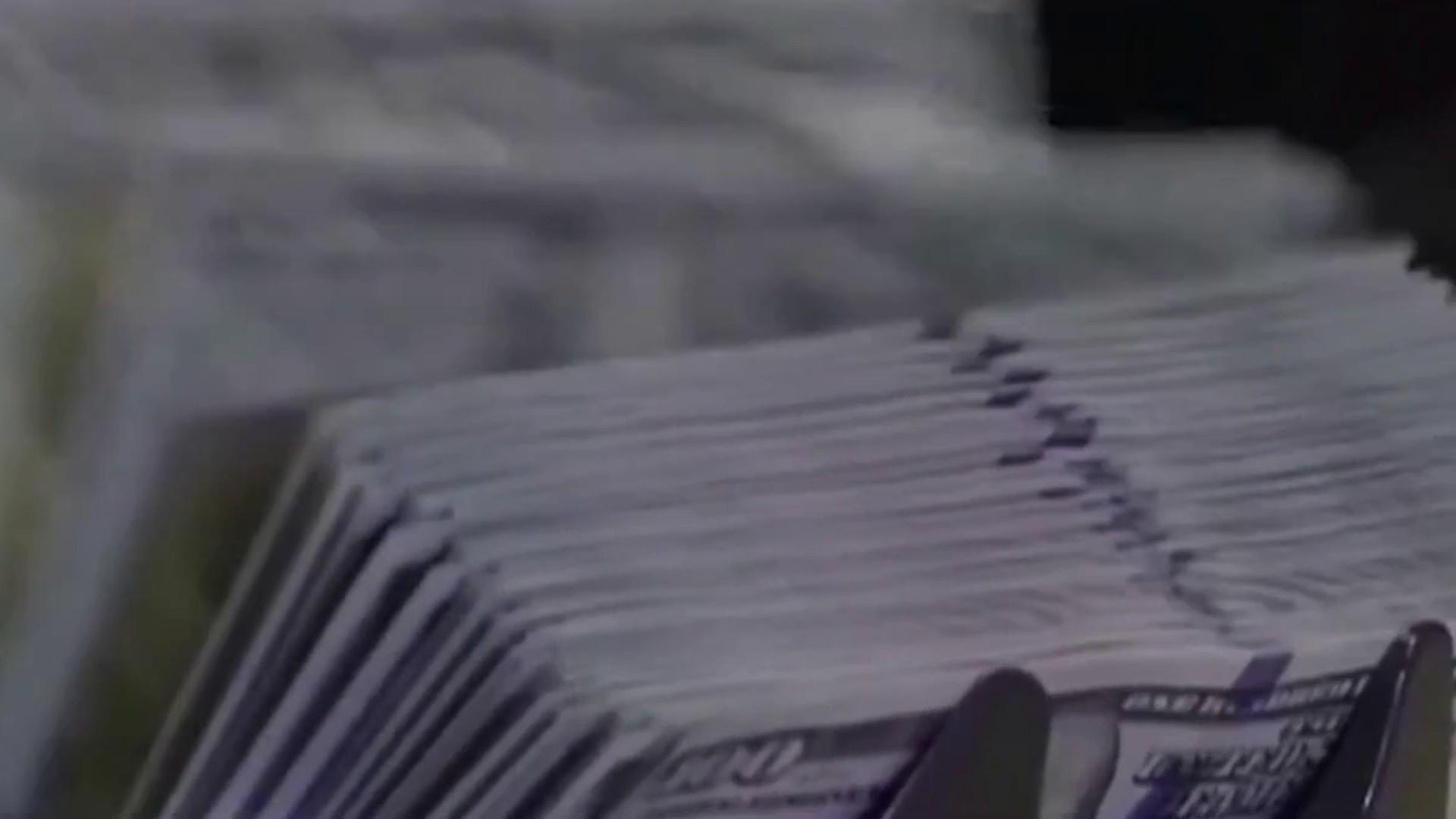We're just a few days away from the 2024 presidential election. Here in Connecticut, we're deciding on a U.S. Senators race and some very competitive races for Congress.
Hundreds of thousands of registered voters have already cast their ballots.
Connecticut's first-ever time for early voting is coming to a close. So how did it go?
NBC Connecticut's Mike Hydeck spoke with Secretary of the State Stephanie Thomas about it.
Get top local stories in Connecticut delivered to you every morning. Sign up for NBC Connecticut's News Headlines newsletter.
Mike Hydeck: First, when it was clear that this was finally coming to Connecticut, and again, we are one of the last states in the country to have some form of this, some of the registrars were worried, like, 'look, how are we going to staff these polls for two straight weeks?' How did it go?
Stephanie Thomas: Connecticut solves problems. This year, over 3,000 people had signed up to serve as a poll worker.
Mike Hydeck: And that's been a problem for years, like we've always had people, retirees, and it's like, we don't want to do it anymore, but people signed up this time.
Face the Facts
Face the Facts with NBC Connecticut goes beyond the headlines, asking newsmakers the tough questions, giving an in-depth analysis of the big stories.
Stephanie Thomas: Exactly. In our office, we definitely talked about it a lot, reached out to some communities, like, for example, the Connecticut Bar Association, etc. So many people signed up. And I kept checking in with registrars, like, are you sure? And they've been set. It's amazing.
Mike Hydeck: Wow. So they were fine to staff it for 14 straight days. We're taping this on Friday, but you know, come Monday or come Sunday, it's over, right? So they're able to staff it. Have you been surprised by the number of people who showed up? I mean, as we tape this on Friday, you said there's more than half a million.
Stephanie Thomas: Yeah, as of today, 557,000 which is, it is a surprise. I didn't know what to expect. We had the two primary elections, lackluster turnout, so it was hard to know. And I didn't know how many people knew all the details about early voting, but the media and so many partners helped to spread the word, and obviously it's been pretty good so far.
Mike Hydeck: Alright, so we have very little problems with election security here in Connecticut. Because this is a new process, Stonington had a thing where some ballots were mixed up. What happened and how did that get fixed?
Stephanie Thomas: So one of the poll workers inadvertently gave out the wrong district at a polling location. Voters noticed, luckily, same day, mentioned it, the registrar was able to confirm that the poll worker gave out the wrong ones, so they immediately sequestered all of the ballots that had been distributed. Those voters were contacted and provided with an opportunity to come back and cast their vote again.
Mike Hydeck: So this can help us streamline processes in the future. Don't put those two districts on the same table.
Stephanie Thomas: So we sent out guidance exactly to that effect, yes, yes.
Mike Hydeck: Well, that's a good thing. So people understand, when will these ballots be counted, the ones of the people who voted early?
Stephanie Thomas: On Election Day. No ballot, under the early voting law, no ballots can be opened and counted until 6 a.m. on Election Day. So it mirrors what happens if you had gone to your regular polling location.
Mike Hydeck: So I was excited. Our son came home from college, we voted, you know, went at the same time as a family, and you have to put it in that secure envelope. The envelope goes in the lock box. Now it's time to count it. So how is that done? It has to come out of that envelopes, right?
Stephanie Thomas: Yes, it has to come out of the envelope and there are processes in place. Obviously, envelopes are segregated from actual ballots, so your privacy as a voter is not violated. And then those ballots are fed into our tabulators, one at a time, so counting will be slow.
Mike Hydeck: And that starts early in the morning, right? On Election Day?
Stephanie Thomas: 6 a.m. they can start opening. So we have already been speaking with all of the towns and making sure they have the resources they need so they can get the count done.
Mike Hydeck: Meaning they have enough employees to do this, who are trained.
Stephanie Thomas: And equipment, yes.
Mike Hydeck: Equipment, too. Do you get extra scanners or something like this or it's the same amount of scanners?
Stephanie Thomas: It depends on the town. You can have extra scanners, but every scanner is keyed to a specific ballot, if you will, and the statutory or the regulation that stipulates you can't add scanners after last Saturday.
Mike Hydeck: So those scanners, for example, to try to explain that just a little further. Say, I live here in West Hartford where the TV station is. A West Hartford scanner can't work in Bridgeport, correct? Because they're keyed to the district.
Stephanie Thomas: And if you had several districts, the scanner for one can't work for the other. So they're keyed with a card, and those cards are made for us in New Hampshire. So last Saturday, we sent someone to New Hampshire to get new cards for any town that had additional equipment that they wanted to make live to help with the counting.
Mike Hydeck: So one other concern was absentee ballots in Bridgeport. It affected the mayor's race a couple of times, actually. Do we have election monitors in place? How is that working, because that was one of the key problems.
Stephanie Thomas: Yeah, our election monitors have been in Bridgeport continuously since last year. So they are still there now. They still are doing training, providing advice, making sure operations are set up securely, so that hasn't changed.
Mike Hydeck: And if anybody sees anything that doesn't look right, call your office or the election enforcement commissioner?
Stephanie Thomas: Anywhere in this state, if you see something, say something, especially this year.
Mike Hydeck: So are you confident that the problems in Bridgeport and elsewhere have been addressed? Do you feel comfortable so far?
Stephanie Thomas: I do. I mean, like any system, it can always be tweaked. I think the legislature put a bunch of laws into effect this last session that will help close some of the issues that we saw in Bridgeport. And I expect after this election, we may think of some other things, like maybe mandating that districts be in separate piles. So, you know, these are things, we keep trying to tweak the system as we go.



